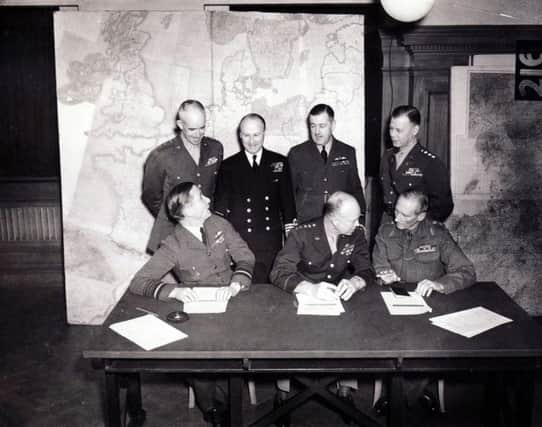D-Day at Sword Beach 70 years on remembered


Naval operations (Operation Neptune) for the D-Day landings were led by Major General Ramsay’s father, Admiral Sir Bertram Ramsay, on June 6, 1944, and his pivotal role in the success of the mission, which was the start of the invasion of Nazi-occupied Europe, was acknowledged as his son took his place alongside the Queen, US president Barack Obama, French president Francois Hollande, Russian president Vladimir Putin and Australian Prime Minister Tony Abott.
Four years before the D-Day landings Admiral Ramsay, a Deputy Lieutenant of Berwickshire, had masterminded the successful evacuation of 338,000 troops at Dunkirk.
Advertisement
Hide AdAdvertisement
Hide AdEisenhower, Supreme Commander of the Allied forces in Europe in the lead up to the landings in Normandy, described Ramsay as “a most competent commander of courage, resourcefulness and tremendous energy”.
Admiral Ramsay’s son David said: “Years later Eisenhower was asked to name the ten greatest men he had known during his career. He did not hesitate to list my father among the ten.”
As the Allied Naval Commander-in-Chief, Admiral Ramsay led the invasion fleet in Operation Overlord (D-Day landings) which involved nearly 7000 naval and merchant vessels, and 195,700 naval personnel. Historian Correlli Barnett described the naval operations as “a never surpassed masterpiece of planning”.
Admiral Ramsay died in an air crash in early 1945 but his role in what was the beginning of the end of World War 2 will always be remembered.